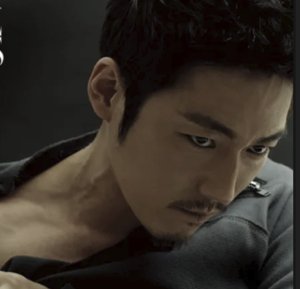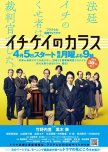Iruma Michios -- A very uniquely done courtroom/law drama
I started this drama as it was coming to its end, and I loved how simple yet deep it is in its dialogues and execution. For example, when Iruma Michio told Nagaoka Makoto it was up to him to decide how he accepts the truth about his father and his death in episode one, probably one of the most explosive episodes along with all the other episodes the only thing I could think was how powerful that one sentence was -- brilliant drama, and this was just me watching the first episode. At the time, I could only imagine how much better the drama would get, and it did. It not only tackled the law and the injustices it commits but also touches on how the elite view the law and the twisted perceptions they impose on it to benefit themselves. I wish the world were full of Iruma Michios.
As I watched this drama, I was reminded of Frederick Douglass's quote when he said. "Where justice is denied, where poverty is enforced, where ignorance prevails, and where any one class is made to feel that society is an organized conspiracy to oppress, rob, and degrade them, neither persons nor property will be safe." A very uniquely done courtroom/law drama presenting the heart of the law while applying the rule of law with a brilliant cast in the marvelous Takenouchi Yutaka as the very humanistic judge Iruma Michio aiming to render the "correct" judgment, not just the politically acceptable one.
When they say it is not power that corrupts but fear, they are absolutely right -- fear of losing power corrupts those who wield it, and fear of the courage of power and what is different corrupts those who are subject to it. So, in that sense, it's not that Iruma is different, but in how he interrupts the law as it was meant to be in that justice cannot be for one side alone but must be for both sides and parties regardless of one's station in life.
Such a simplistic drama, yet it manages to raise such piercing questions in how the higher-ups in the legal system and the general public view and interpret law and justice. And to that end, I am a complete sucker for dramas with bold messages, and Ichikei no Karasu's was clear that true freedom requires the rule of law and justice and a judicial system in which the denial of rights to others does not secure the rights of some. And that judges should not just interpret the letter of the law but understand it and apply it fairly and justly.
Undoubtedly the drama and Iruma Michios wouldn't have been as good with the support of its wondrous cast in Judge Komazawa Yoshio, who makes it possible for Iruma and the rest of his team to be who they are - true to themselves and the judgments they consciously render; Nakamura Baijaku as Chief Secretary Kawazoe Hiroshi, and law clerks aIshikura Bunta, Sakurai Yuki (Sakurai Yuki), Ichinose Itoko (Mizutani Kaho), and prosecutors Ide Iori (Yamazaki Ikusaburo) and Ichinose Itoko (Masu Takeshi). I love how principled this drama was to the end. Highly recommend it.
"Until justice is blind to color until education is unaware of race, and until opportunity is unconcerned with the color of men's skins (statues), emancipation will be a proclamation but not a fact" ~ Lyndon B. Johnson.
As I watched this drama, I was reminded of Frederick Douglass's quote when he said. "Where justice is denied, where poverty is enforced, where ignorance prevails, and where any one class is made to feel that society is an organized conspiracy to oppress, rob, and degrade them, neither persons nor property will be safe." A very uniquely done courtroom/law drama presenting the heart of the law while applying the rule of law with a brilliant cast in the marvelous Takenouchi Yutaka as the very humanistic judge Iruma Michio aiming to render the "correct" judgment, not just the politically acceptable one.
When they say it is not power that corrupts but fear, they are absolutely right -- fear of losing power corrupts those who wield it, and fear of the courage of power and what is different corrupts those who are subject to it. So, in that sense, it's not that Iruma is different, but in how he interrupts the law as it was meant to be in that justice cannot be for one side alone but must be for both sides and parties regardless of one's station in life.
Such a simplistic drama, yet it manages to raise such piercing questions in how the higher-ups in the legal system and the general public view and interpret law and justice. And to that end, I am a complete sucker for dramas with bold messages, and Ichikei no Karasu's was clear that true freedom requires the rule of law and justice and a judicial system in which the denial of rights to others does not secure the rights of some. And that judges should not just interpret the letter of the law but understand it and apply it fairly and justly.
Undoubtedly the drama and Iruma Michios wouldn't have been as good with the support of its wondrous cast in Judge Komazawa Yoshio, who makes it possible for Iruma and the rest of his team to be who they are - true to themselves and the judgments they consciously render; Nakamura Baijaku as Chief Secretary Kawazoe Hiroshi, and law clerks aIshikura Bunta, Sakurai Yuki (Sakurai Yuki), Ichinose Itoko (Mizutani Kaho), and prosecutors Ide Iori (Yamazaki Ikusaburo) and Ichinose Itoko (Masu Takeshi). I love how principled this drama was to the end. Highly recommend it.
"Until justice is blind to color until education is unaware of race, and until opportunity is unconcerned with the color of men's skins (statues), emancipation will be a proclamation but not a fact" ~ Lyndon B. Johnson.
Cet avis était-il utile?


 2
2






















